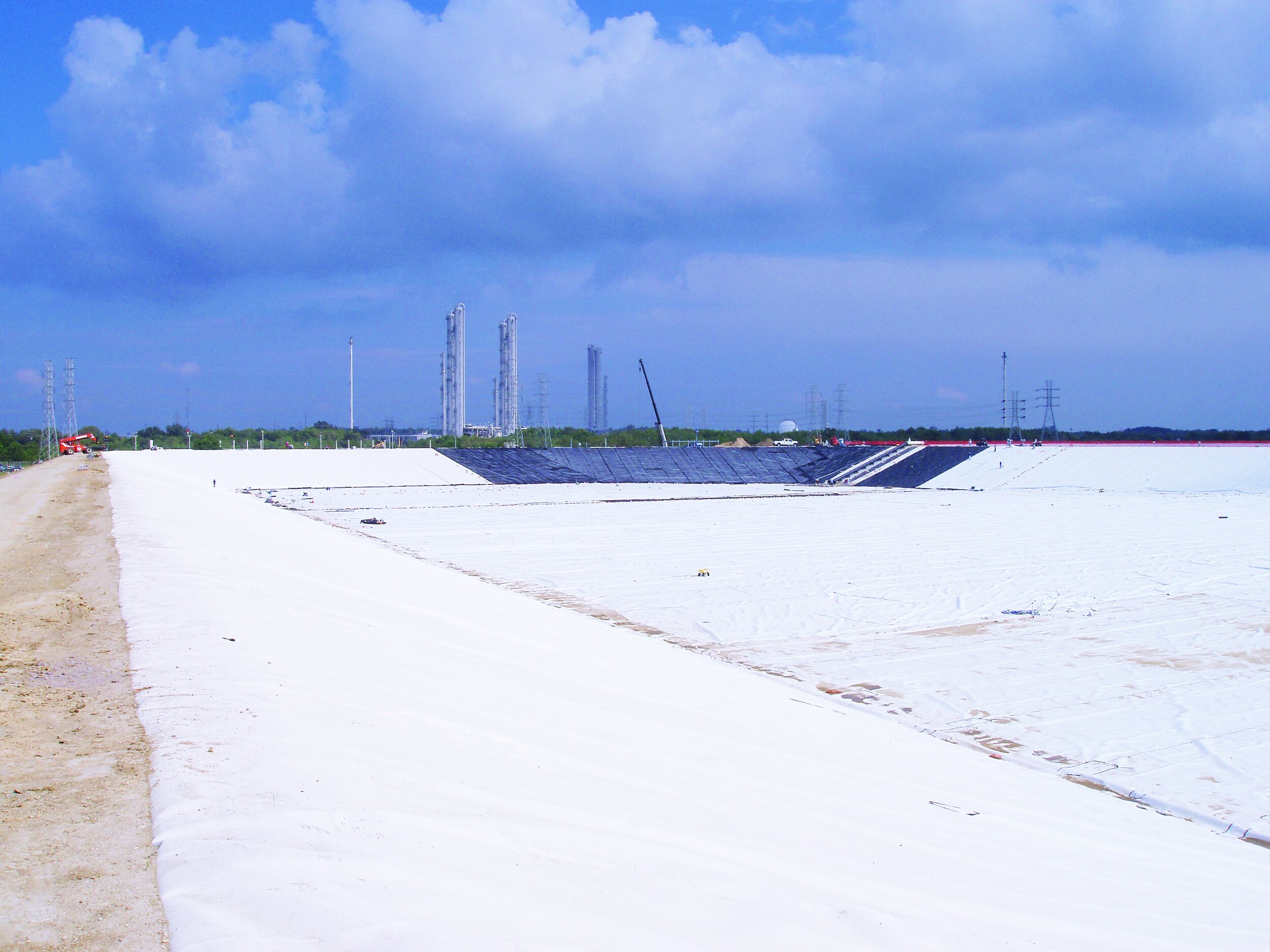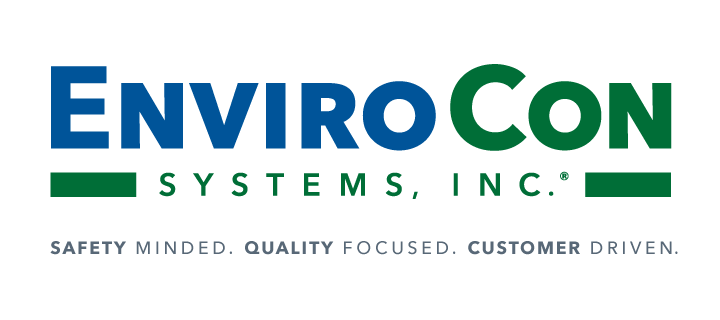
When we take on your project, our experts take care of the details.
In the meantime, check out our frequently asked questions to learn more about liner application at EnviroCon Systems.
-
The life expectancy of HDPE liners is dependent upon the environment in which they are installed. Exposure to high temperatures, certain chemicals, constant loads and adverse site conditions shorten the life of liners. In buried applications such as a solid waste landfill, the life expectancy can be up to 200 years. In an exposed application such as a floating cover, the life expectancy can reach 20 years.
-
Chemical resistance in liners is referred to as “chemical compatibility”. From a practical application and engineering perspective, chemical compatibility means that a liner will not fail due to chemical exposure, although the chemical may have some effect on the liner material. Each liner recommended and supplied by EnviroCon Systems provides a high degree of chemical resistance to a wide range of chemicals. A chemical compatibility list can be compiled upon request.
-
Yes, if they have been treated with a UV inhibitor, such as carbon black added to polyethylene liners. EnviroCon Systems will provide material that is equipped to meet the requirements of every project.
-
You can purchase and install the liner yourself. However, liner installation is a specialized skill and the manufacturer’s warranty is voided if the liner is not installed be a certified installer. EnviroCon Systems field technicians are vigorously trained, and our work meets the requirements for manufacturer warranty.
-
Geosynthetic liners are suited for a wide range of applications. The most common uses are in pits, ponds, wastewater treatment, tanks, basins, sumps, foundations, landfills, canals, secondary containment walls or berms, water reservoirs, lagoons, leach/processing pads and leak detection and collection.
-
Liners are resistant to root penetration. Some vegetation, such as nut grass, could penetrate a liner in thicknesses less than 12 mil. We recommend that subgrade soils be prepared and free of roots and other organic material to mitigate such problems.
